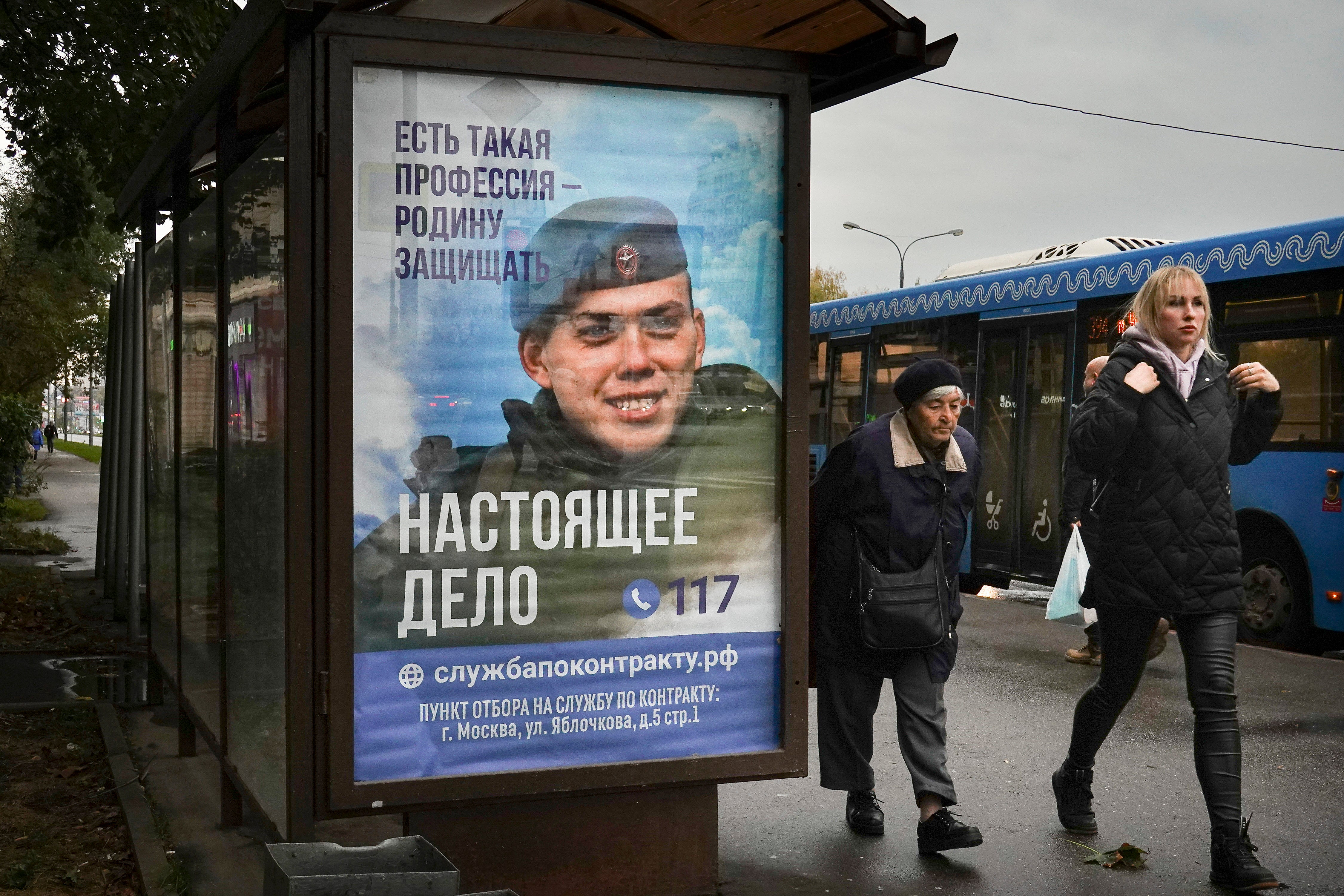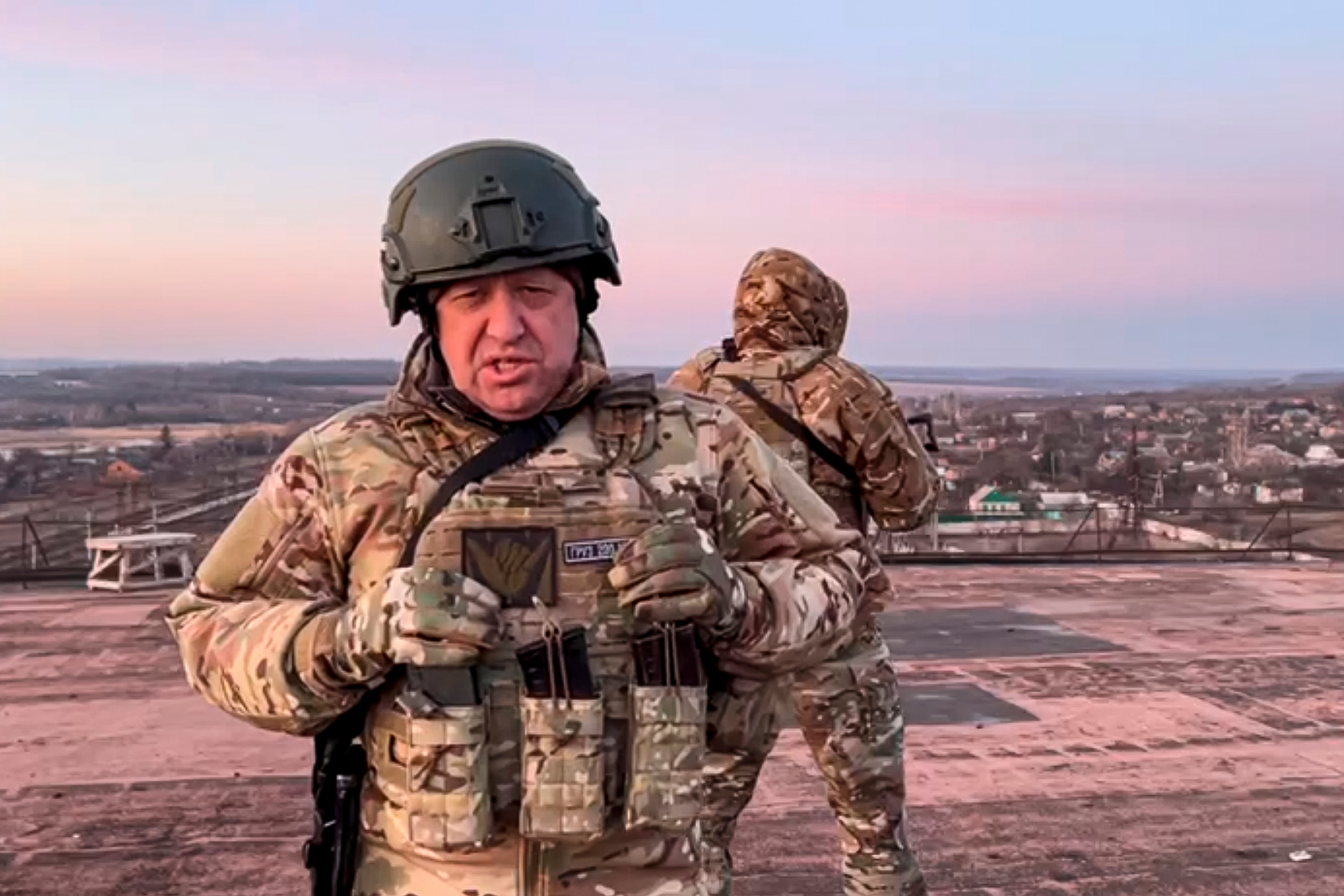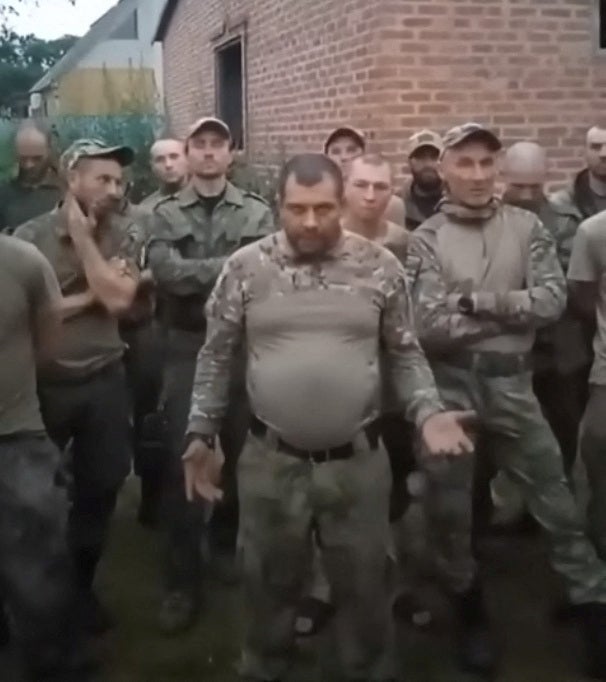Russia recruits prisoners for Ukraine war as Putin replicates Wagner
Penal squads ‘just meat,’ Storm-Z soldier says
Russia has taken the wheel from Wagner as the Kremlin has recruited up to 100,000 prisoners to fight in Ukraine.
The practice was a trademark move of the late mercenary boss Yevgeny Prigozhin, who filled his group’s ranks with convicted criminals.
The army unit, commonly known as Storm-Z, is reportedly seen as a disposable force in Vladimir Putin’s “special military operation”.

It comes as the Russian prison population has dropped from an estimated 420,000 to around 266,000, according to deputy minister Vsevolod Vukolov, who disclosed the figures earlier this month.
Russian state-controlled media reported that Storm-Z squads exist, that they took part in intense battles and some of their members received medals for bravery, but it has not disclosed how they are formed, or the losses they take.
While the Russian defence ministry has never acknowledged creating Storm-Z units, the first reports of their existence emerged in April when the Institute for the Study of War cited what it said appeared to be a leaked Russian military report on the formation of the squads.

RTVI, a Russian news website, said Storm-Z “is the same scheme as with the [Wagner] private military company. Prisoners sign contracts with the defence ministry, and after completing them they can go home or continue serving”.
However, a Russian soldier who fought alongside members of the penal squad told Reuters that Storm-Z fighters “are just meat”.
The soldier, from army unit no. 40318 who was deployed near Bakhmut in May and June, said he’d given medical treatment to a group of six or seven wounded Storm-Z fighters on the battlefield.
In doing so, he had disobeyed an order from a commander - whose name he didn’t know - to leave the men. He said he didn’t know why the commander gave the order, but claimed that it typified how Storm-Z fighters were considered of lesser value than ordinary troops by officers.

The soldier, who requested anonymity because he feared prosecution in Russia for publicly discussing the war, said he had sympathy for the men’s plight: “If the commandants catch anyone with the smell of alcohol on their breath, then they immediately send them to the Storm squads.”
The UK ministry of defence addressed the emergence of the penal squads in its update on 24 October, saying: “Russia largely continues to rely on specially designated ‘Shtorm-Z’ units for local offensive operations in Ukraine.”
It said: “Multiple accounts suggest the units are given the lowest priority for logistical and medical support, while repeatedly being ordered to attack.”
The intelligence update added that the squads were “likely first fielded in 2022” and they highlight “the extreme difficulty Russia has in generating combat infantry capable of conducting effective offensive operations”.
Join our commenting forum
Join thought-provoking conversations, follow other Independent readers and see their replies
Comments
Bookmark popover
Removed from bookmarks